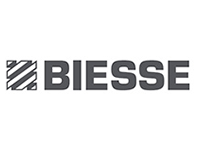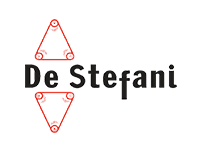Guidelines for the personal data protection.
What is GDPR?
GDPR is a regulation by which the European Parliament, the Council of the European Union and the European Commission intend to strengthen and unify data protection for EU residents. This legal framework replaces the current EU Data Protection Directive (95/46/EC) with additional requirements that you need to be aware of. The new EU data protection regime extends the scope of the EU data protection law to all companies even outside the EU when they process data of EU residents. GDPR comes into effect on May 25th, 2018.
SEMPRE Ltd. – the owner of www.sempre.com.pl site is responsible for data processing in the digital version of www.sempre.com.pl site, hereinafter referred to as “the product” and undertakes to use them in accordance with the provisions of the Personal Data Protection Act of 29th August 1997 (hereinafter referred to as “the law”). The administrator of personal data within the meaning of the Personal Data Protection Act is SEMPRE company, who declares that all users personal data will be used in accordance with the Act.
What you can expect from privacy policies regarding personal data protection
This document presents the procedures and personal data processing terms of users purchasing the Product and other products and services belonging to SEMPRE Ltd. The administrator of personal data is SEMPRE Ltd., Inowrocławska 1 street, 87-100 Toruń. At this address users may have, at any time, an explanation of the privacy policy adopted by SEMPRE regarding the protection of personal data.
Collection and use of personal data
SEMPRE only collects personal information of its users if SEMPRE provides specific service or product purchase. The personal data that SEMPRE requires for registration are only those that are allowed by the law cited above. SEMPRE shall under no circumstances require users to provide so-called „sensitive“ data as defined in art. 27 cited law. Provision of the personal data by the user and consent to their processing is voluntary, but is a prerequisite for using SEMPRE’s services. Only the user agrees to the registration. At the registration the user makes available their personal information by filling in the required fields and optional fields. The data contained in the required fields are necessary to provide the service, while the personal data in the optional fields are useful for improving service and communication quality and enable SEMPRE to fully meet user needs and inform them of SEMPRE’s new services and products.
Methods and purposes of data processing
SEMPRE collects personal data provided by users as specified above by electronic means and their processing is done electronically or manually. SEMPRE uses provided information for the following purposes: these inherent in the implementation and delivery of services in order to take effective action in the event of a complaint by a user of a product or service, in order to verify the quality of the service provided, to conduct market statistics, for purposes of (previously agreed upon) commercial and promotional purposes. Personal data disclosed and revealed by users and then collected as specified above, allow the identification only to SEMPRE. They may be passed on to third parties only and solely if: SEMPRE has obtained the user’s consent to make the data available to third parties, entities acting on its behalf or cooperating with SEMPRE to ensure proper quality of the service provided, to ensure proper level of products and services (These entities are authorized to process personal data of users only for the purpose of SEMPRE services). Each user has the right at any time to inspect, correct and delete its data by themselves or by sending information to:
SEMPRE Sp. z o.o.
Inowrocławska 1, 87-100 Toruń.
This application can also be sent by e-mail to:
biuro@sempre.com.pl
Cookies files
We would like to announce that, in order to adapt the content and services of the websites (hereinafter „services“) belonging to SEMPRE Ltd. for individual interests and user needs, we use the information stored by the service servers on the users’ terminal equipment (computer, tablet, mobile device, etc.) that the servers can read whenever they connect to this device, so called “cookies”, these servers may also use other technologies with functions similar or identical to „cookies“. „Cookies” are IT data, especially text files which, by writing to the end user, allow them to learn about their behavior, interests, and needs. „Cookies” provide statistics about using by the users of individual sites and their functionality. „Cookies“ do not identify the user’s personal information and do not affect the functionality of the end user device or its software. „Cookies“ usually include the domain name of the site from which they came from, their storage time on the terminal equipment, and an unique number. „Cookies“ may be posted to the end user’s device and subsequently used by advertisers, research companies, or multimedia application providers.
„Cookies” files are used to:
- Adjusting the content of the services sites to user’s preference and optimization of website usage because „cookies“ allow to recognize the service user’s device and display a website adjusted to his individual needs.
- Creating statistics that allow to understand how service users make use of websites which allow to improve them.
- Maintaining the service user session (after logging in), thanks to that user don’t have to retype the login and password on every subpage
- Providing users with advertising content matched to their interests
Within our services we may use the following types of “cookies” files:
- so called necessary „cookies”, enabling usage of services available within the services e.g. credential „cookies“ files used for services requiring authentication within the services
- „cookies” files which provide safety, f.e. used for abuse detection within authentication under the services,
- „cookies” files enabling to collect of information on the manner of using the websites of the services,
- so called functional „cookies” enabling to memorise of privacy settings chose by user and user’s interface personalization, f.e. language or region the user use or come from etc.
- so called advertising „cookies” enabling the supply of advertisements which are more fitted to the users’ interests.
In many cases the software for web browsing (web browser) automatically accept „cookies” by default in the user’s terminal equipment. Every user can disable accepting „cookies” in his software at any time. Detailed information on the possibility and the ways of using “cookies” is available in your software’s settings section (the browser). Disabling cookies in the browser can cause hindrances or even prevent them from using some services, however this does not cause lack of the possibility to read or view the content within services, except those to which access is required by signing in. User’s affirmative consent to accept „cookies” is ensured through change the browser settings allowing “cookies” processing. By no changing the browser settings, you are agreeing to accept „cookies”.












